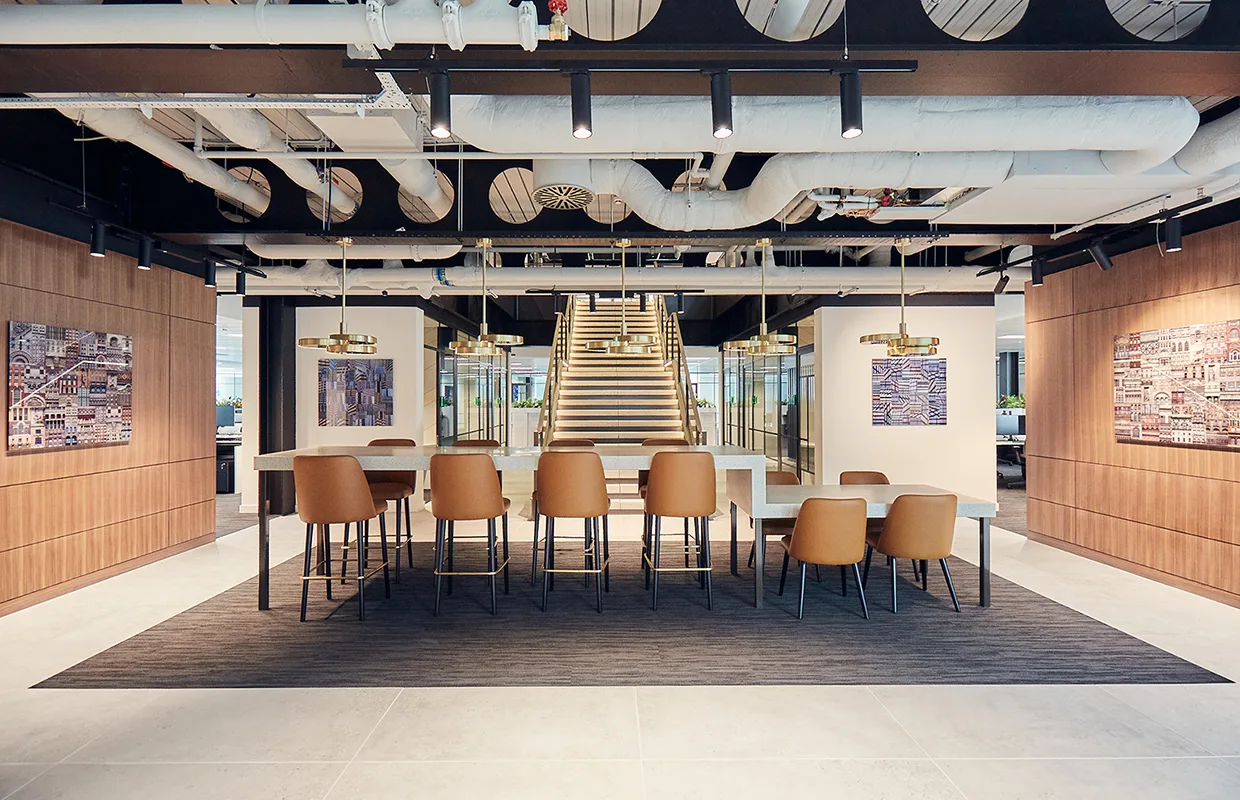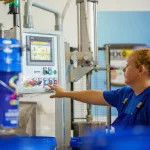Transforming workplaces throughout London and beyond, leading office design and build firm, Peldon Rose, offers strategic insights and innovative solutions to businesses looking to optimise their productivity. Jitesh Patel, CEO, discusses the company’s position within an evolving sector, its wealth of industry knowledge, and aspirations for the future.
THE EVERYDAY EXCEPTIONAL
In recent years, the UK’s design and construction industry has witnessed considerable evolution, particularly when it comes to commercial office design.
From the office cubicles popularised in the late 1990s and open-plan layouts of the mid-2000s, to hot desking and the resimercial designs seen today, the sector has never been static.
Heralding the birth of work from home and the hybrid-remote model, the COVID-19 pandemic drastically increased freedom of choice amongst workforces and accelerated the industry’s rate of change.
Leading London office design and construction company, Peldon Rose, is on hand to lend its expertise to companies looking to navigate this fluctuating landscape.
Offering considerately designed spaces tailored to suit any need, the company prides itself on providing full lifecycle real estate solutions for commercial businesses.
“As a company, we provide a response to what the market is asking for,” opens Jitesh Patel, CEO.
“Today, it’s all about cultivating experiential spaces. Businesses are interested in how we can unlock potential and bring people together to collaborate and innovate.”
In this way, Peldon Rose works with companies and corporations across London to pinpoint their business goals and develop innovative, bespoke solutions to achieve these within their office space.
“If we do our job well, we give businesses a competitive advantage,” he adds.
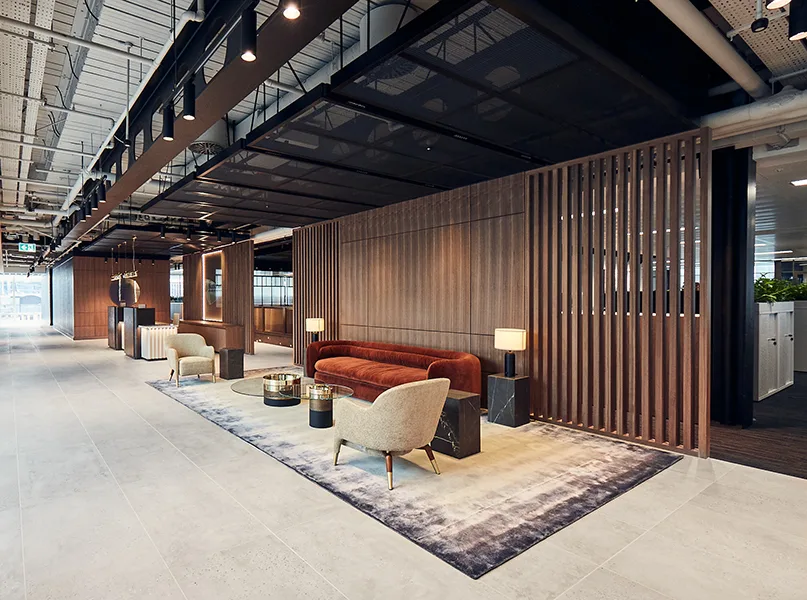
A HOLISTIC EXPERIENCE
In a world where travelling to the office is now more of a rarity, Peldon Rose recognises the importance of providing employees with a reason to make the journey in.
“Going to work was once a chore whereas now it should be an exciting privilege,” Patel notes.
As such, the company pays heed to placemaking, which includes the integration of leisure and well-being facilities within and in proximity to the workplace alongside optimising factors such as an office’s location, acoustics, and even air quality.
“Placemaking is about providing a holistic experience for all aspects of life. We need to make sure spaces are designed to promote physical and mental health and well-being, and optimise the work-life balance,” he reflects.
“No longer is the office a place siloed for ‘work’ or ‘stress’. It can be a location for exercise, socialising, and leisure activities. That’s what placemaking is about – creating a destination workplace with a total greater than the sum of its parts.”
To action this, Peldon Rose’s dedicated Workplace Strategy Team is on hand to help shape clients’ business narratives.
Derived from data such as demographics, growth charts, travel patterns, and time-utilisation studies, each client’s strategy is geared towards innovatively addressing their own unique business challenges through workplace design.
For example, because attracting and retaining talent can pose difficulties for growing businesses, the team devises case-by-case strategies to deliver solutions.
“Take a company experiencing a massive growth spurt and looking to recruit, for instance. This is where we come in to design best-in-class spaces that enhance the employer’s profile and brand, helping it to stand out as a preferred option for potential employees,” Patel explains.
In addition, Peldon Rose’s Landlord Business Unit (BU) works with landlords, developers, and asset managers to reshape and reimagine their real estate to meet the needs of businesses.
“Because of our wealth of knowledge in this sector, we’re able to assist landlords in effectively repositioning their assets to make them more attractive in a modern-day environment,” he divulges.
Underpinning the Workplace Strategy Team and Landlord BU is a Furniture Consultancy BU, which delivers specialised commercial furniture solutions to each project, and a Client Focus Team that responds to the constantly changing needs of businesses.
Therefore, Peldon Rose seeks to offer a full lifecycle of services, even providing aftercare for each of its design and fit-outs in the form of planned preventive maintenance (PPM).
“We don’t just want to be there if something’s gone wrong – we want to ensure that in five years’ time, the space is operating as effectively as it was on day one,” Patel clarifies.
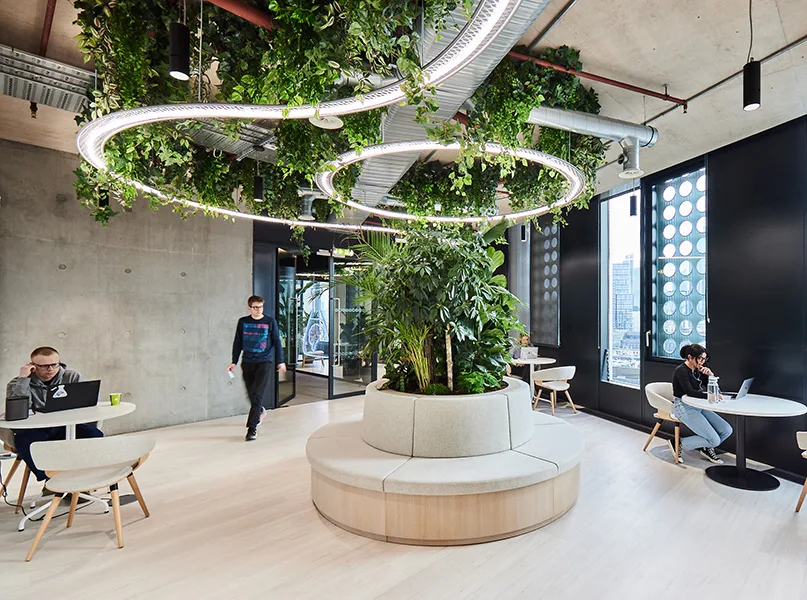
PEOPLE, PROCESSES, PRODUCTS
Within a saturated industry, Peldon Rose is a consultancy-led design and construction company that sets itself apart by heavily investing in its people, processes, and products.
“If you compare us to our top-tier competitors here in London, we are the only business that continues to actively invest in people,” he tells us.
Peldon Rose prioritises investment in its staff so that it can remain ahead of the curve and be ready for future opportunities, cultivating a distinct advantage.
As an organisation that strives towards continuous improvement, Peldon Rose also pays attention to both successes and challenges in the marketplace to inform its approach.
“When approaching new projects, we seek to add value based on our years of industry experience and knowledge of what works,” Patel informs.
This is exemplified through each recent project the company has undertaken, all of which are focused on delivering industry change through innovative solutions.
Ongoing projects in the gaming, private equity, and financial sectors, for example, include exciting, change-focused plans that will see Peldon Rose impart its expertise to major brands.
For each of these designs, clients have access to a suite of state-of-the-art technologies such as 3D modelling, computer-generated imagery (CGI), and even virtual reality (VR).
“Our 3D modelling is photorealistic, so we can demonstrate project change without impacting any visual modification,” Patel excites.
Furthermore, the company’s innovative use of Matterport’s spatial mapping technology streamlines the design and planning process, enabling it to survey real estate within two weeks or less – a vast improvement on the two months this process would otherwise take.
VR, meanwhile, helps clients to understand how a space might work for them by allowing them to physically walk around it whilst being shown visuals in real-time, which often results in faster decision-making, especially if business leaders are based in overseas headquarters.
“In short, cutting-edge technologies help us not just to improve the client experience, but speed up the process,” he surmises.
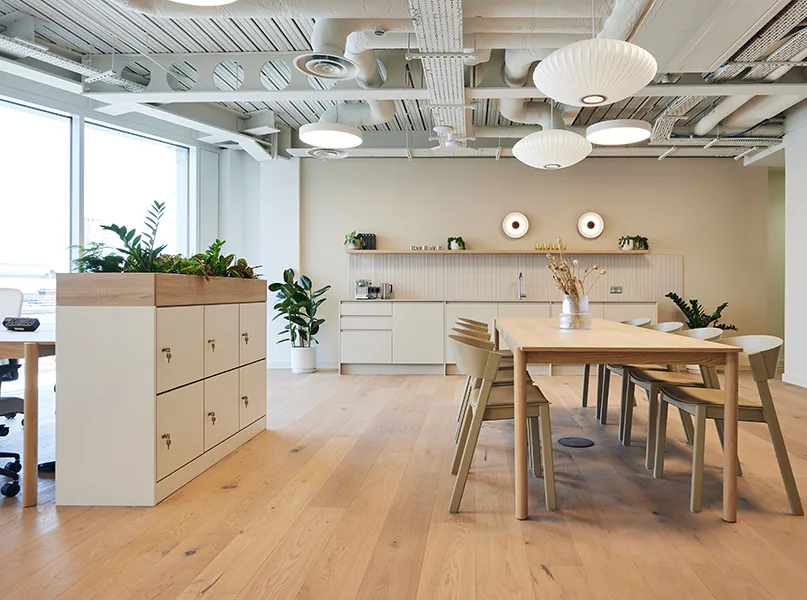
LEADING BY EXAMPLE
Evidently, Peldon Rose is deeply committed to its mantra of delivering exceptional everyday experiences.
Doing more than just promoting a holistic, solution-oriented approach towards real estate optimisation amongst its clients, the company seeks to do the same amongst its own workforce.
“You can have the best ideas in the business, but if you don’t have the right people or culture to deliver them, you’ve failed. Therefore, we put a lot of effort into operating our own healthy company culture,” Patel reveals.
Echoing the advice and solutions it offers clients, Peldon Rose’s company culture naturally begins with its real estate, offering employees premium spaces to carry out their best work whilst also creating a sense of community and well-being.
Mental health and well-being initiatives in the office include regular puppy therapy and office massages, helping instil moments of comfort and joy throughout the working day.
“Culture is rich when people want to share experiences together, and the spaces we design allow us to do that,” he prides.
To further develop a sense of community within its own workforce, the company has introduced ‘Bring Your Passion to Peldon Rose’, a programme through which employees have organised ski trips, book clubs, marathons, and bike rides.
The company also participates in an employee engagement survey each year in collaboration with Great Place to Work® and has recently been voted one of the leading design and construction businesses in this category.
“Ultimately, the fabric that holds us together as a business is engagement – whether it’s the space we provide or the activities we do, it’s all about maximising our people’s well-being and collaboration.”

“Placemaking is about providing a holistic experience for all aspects of life. We need to make sure spaces are designed to promote both physical and mental health and well-being”
Jitesh Patel, CEO, Peldon Rose
DELIVERING CULTURE AND IDENTITY
Looking to the future, Peldon Rose’s priority is to continue providing exceptional everyday experiences for clients through its work in real estate, despite being faced with ongoing industry fluctuations.
“The nature of our work is always changing, as is the industry. We therefore need to ensure we are fluid and constantly evolving to continue to meet our clients’ needs,” Patel affirms.
Thus, the company seeks to recruit more young people who can learn from experienced staff, cultivating a cyclical, versatile workforce able to serve a multitude of client requirements.
“My vision is that we continue providing innovative office and real estate solutions in which a more experienced workforce mentors and develops those that are only just entering the market,” he shares.
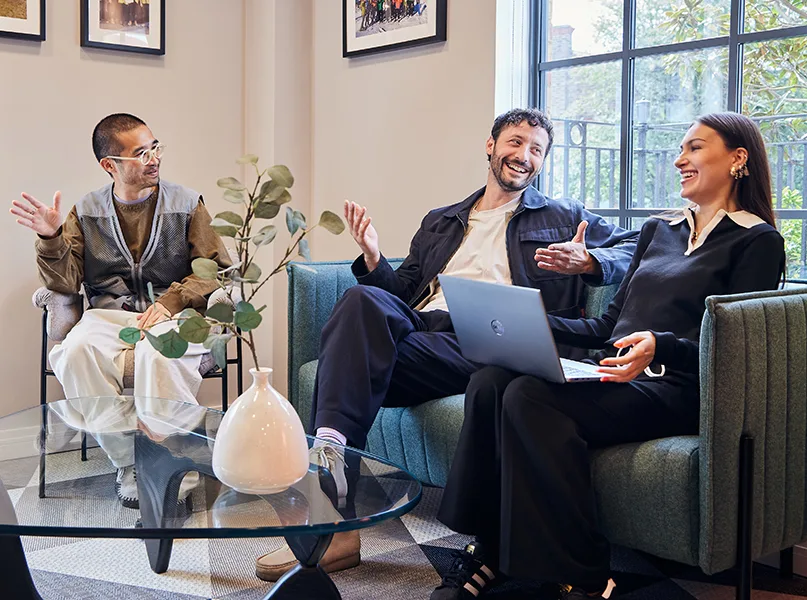
“Today’s young talent is tomorrow’s new horizon.”
In pursuit of innovation and education amongst its staff, Peldon Rose implements a culture of continuous learning, with a robust mentorship scheme and a physical working environment which encourages opportunities for learning and growth.
Collaboration is a cornerstone of successful learning, so its office includes communal workplaces and breakout areas dedicated to collective use. An open layout and much-loved common areas, such as the large kitchen table in the office tea point, promote learning by osmosis, as colleagues overhear each other or catch up informally.
These areas are also great levellers – having lunch and bumping elbows with the COO over a bowl of soup means that junior and senior members feel equally comfortable, valued, and approachable.
“Culture is rich when people want to share experiences together, and the spaces we design allow us to do that”
Jitesh Patel, CEO, Peldon Rose
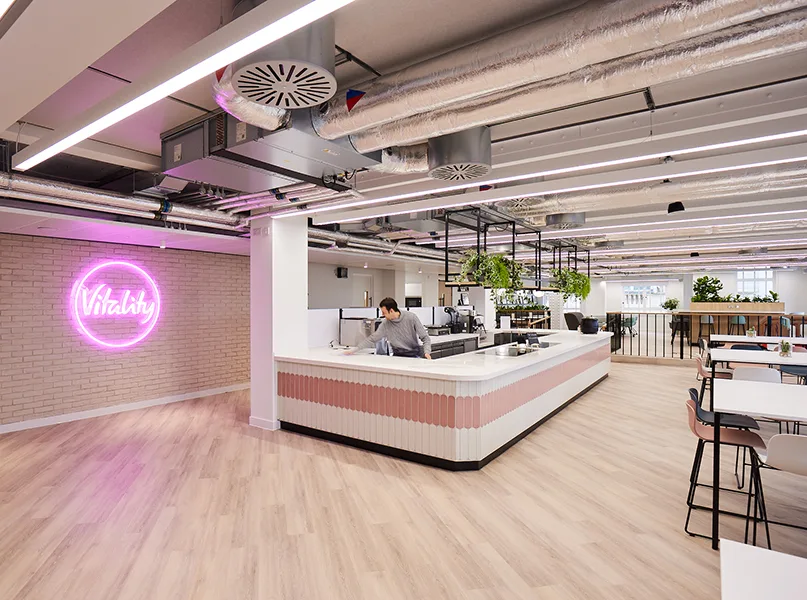
Meanwhile, working with organisations to help them integrate their own unique culture and identity to motivate their workforces remains of utmost importance.
Reflecting on today’s business landscape, Patel notes how a closely monitored, surveillance-oriented approach to hybrid working can only result from a loss of culture, identity, and therefore motivation within a business.
“Without culture or identity, every business would be the same – just working from a different postcode,” he points out.
Therefore, Peldon Rose’s goal is more than just developing and delivering real estate solutions – it’s cultivating a unique sense of identity for businesses.
“For us, the future is about making sure we collaborate with organisations to deliver both culture and identity through workplace design, because that’s what ultimately leads to differentiation,” he concludes.



